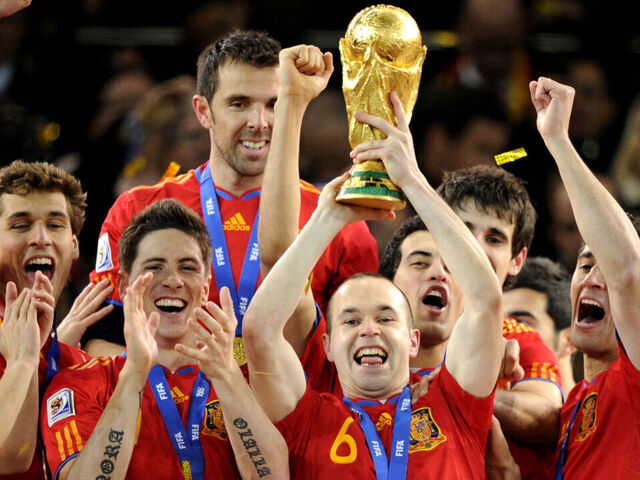Andres Iniesta Hints at Retirement After Storied Career

Andres Iniesta, the player who delivered Spain's 2010 World Cup victory with a decisive extra-time goal, appeared to announce his retirement at age 40 on Monday.
In a video titled "The Game Continues," posted on X, the former Barcelona midfielder became emotional when asked what football meant to him.
Iniesta played a key role in Barcelona's success during his 16 seasons at the club, during which he won over 30 trophies. He was part of one of football's most famous midfield combinations alongside Xavi and Sergio Busquets, contributing to Barcelona's dominance during that period.
After leaving Barcelona at the end of the 2017-18 season, Iniesta joined Japan's Vissel Kobe for six years before moving to the United Arab Emirates, where he seems to have concluded his professional playing career.
Regarded as one of football's best passers, Iniesta also had a reputation for scoring in crucial moments. Notably, he scored in the 2009 Champions League semifinal against Chelsea and netted the winning goal in the 2010 World Cup final against the Netherlands in the 116th minute, giving Spain its first-ever World Cup title. His achievements with the national team include winning two consecutive European Championships in 2008 and 2012, and he was named the best player of Euro 2012.
Born in Albacete, Iniesta joined Barcelona's La Masia academy at age 12. His career with the club resulted in nine La Liga titles, six Copa del Rey victories, and four Champions League titles.
Throughout his career, Iniesta played over 900 competitive matches and was respected by opponents and fans alike. He was never shown a red card. In one memorable instance, fans of rival club Espanyol gave Iniesta a standing ovation during a Barcelona 5-1 victory in December 2010.
Despite his success, Iniesta never won the Ballon d'Or. He finished second behind Lionel Messi in 2010 and third in 2012. In 2018, Pascal Ferre, the director of France Football, which presents the Ballon d'Or, issued an apology for not recognizing Iniesta.
"Forgive us, Andres," Ferre wrote. "For us, he wasn't just a player. He was the player. His sacrifices for the team deprived him of greater individual recognition. His absence from the Ballon d'Or winners list is particularly painful."








